"With its ideas and projects, our InnovationCampus Future Mobility is constantly opening up new options for the future - for example, in research into modern electric drives without the use of precious metals. Here, researchers from Karlsruhe and Stuttgart are developing new, competitive solutions in mobility and production technology, paving the way for sustainable mobility. Baden-Wurttemberg is encouraging this spirit of innovation and strengthening the state as a research hub, together with the ICM and our other Innovation Campus models," explained Science Minister Petra Olschowski.

Future mobility is advancing
With 130 projects and a budget of 65-million euros, the InnovationsCampus Future Mobility (ICM) is one of the largest research initiatives for sustainable mobility and associated production technologies. The Karlsruhe Institute of Technology and the University of Stuttgart are pooling their expertise in research and innovation in this project - funded by the Baden-Württemberg Ministry of Science. At the ICM Day: Future Mobility Open Labs on October 5, the most important results will be presented to visitors from industry, research and politics at the ARENA2036 research factory. A total of more than 80 interdisciplinary and cross-institutional projects will be presenting their findings.
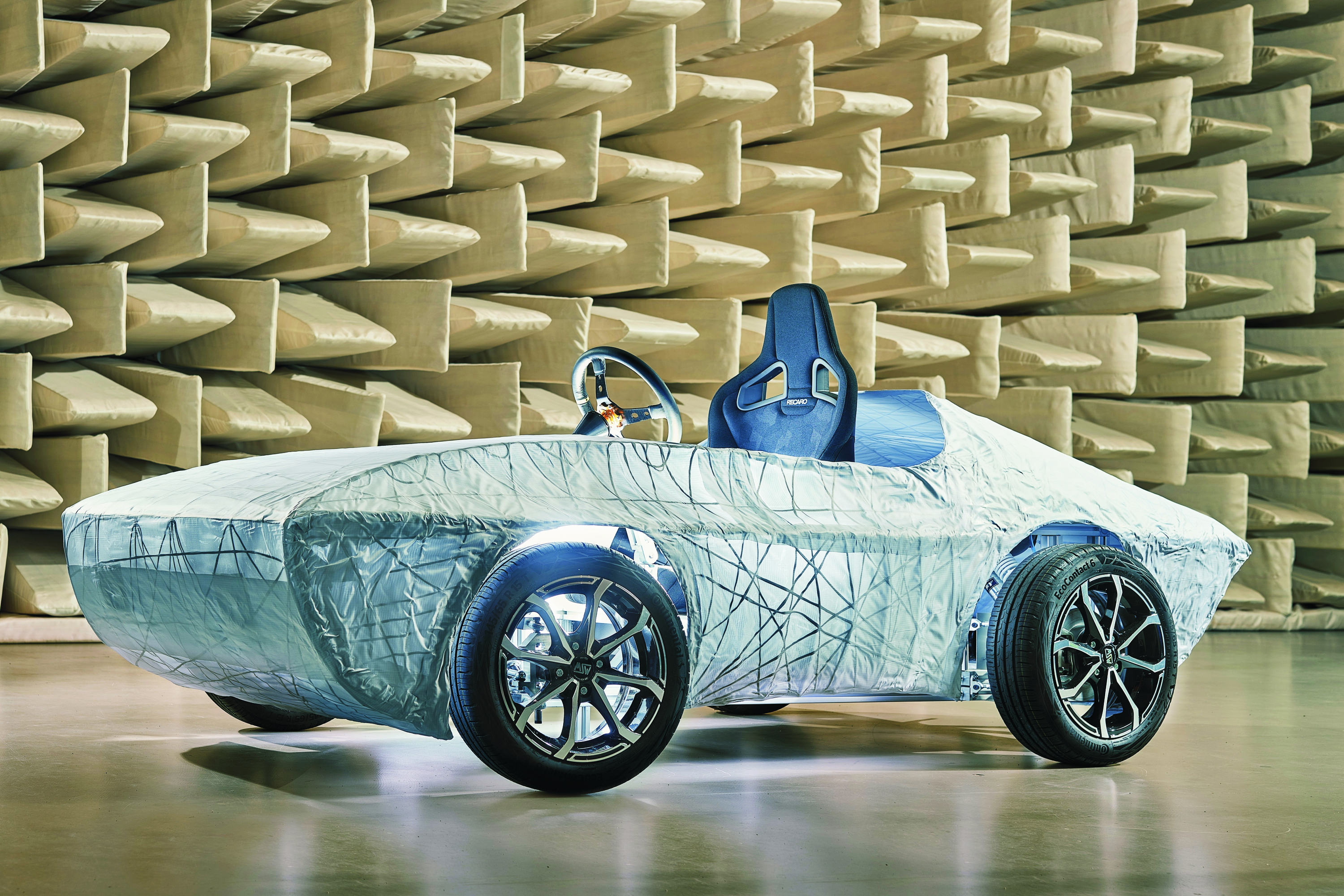
Electric car "eVee" takes its first public test drive
Driving is generally prohibited in exhibition halls, even for public attractions such as the ICM's test vehicle. That's why the "ICM Day: Future Mobility Open Labs" in 2023 will probably be the first opportunity for the electric car to be driven in front of an audience in its road-ready version "eVee". This model boasts new technologies that will make future mobility more sustainable and efficient. The concept is a flexibly deployable lightweight vehicle that contributes to sustainable and networked mobility, for example as part of an autonomous car-sharing fleet. As a modular test platform, the vehicle is used to test hardware and software components from ICM projects in the overall system. "We are helping to advance cutting-edge research, to ensure that future mobility is made in Baden-Württemberg and thus in Germany," says Dr. Max Hoßfeld, managing director of the ICM at the University of Stuttgart. Visitors can find out more about research findings from the fields of mobility technologies, manufacturing systems and software system architectures at the exhibition on ICM Day.
A highlight is the so-called "Variable Flux Machine" (VFM) mounted in "eVee", the core of which is a scaled-down version of the modified VFM from the ICM projects Remos and Remos2. The rotor flux of these machines is controlled using magnets without precious metals, which offers some advantages, especially at high motor speeds. In their projects, ICM scientists have succeeded in significantly increasing the power density and efficiency of the VFM. This has been made possible by manufacturing the rotor in a new metal-plastic design and the targeted use of variable magnets without precious metals.
Trade show demonstrator "DeVee" presents the transverse flux machine
The non-drivable trade fair demonstrator "DeVee", which is also on display, contains the small star of the ICM - the transverse flow machine (TFM) from the AddiMoT project. And it really is small. This is because a TFM, thanks to its design with copper coils wound concentrically around the axis, can be constructed much more compactly than conventional electric motors with the same torque. This makes it very suitable as a direct drive, as it has been implemented in "DeVee". The ICM scientists are also using the compact electric drive to demonstrate the potential of additive manufacturing of metallic components. Slots and grids are specifically used as design elements to further reduce eddy currents and increase efficiency. At ICM Day, a digital visualization that makes magnetic fields and current flows visible is used to demonstrate how the compact electric motor works. A fuel cell has also been newly designed as part of the project and integrated into the drivetrain of the trade fair demonstrator model.
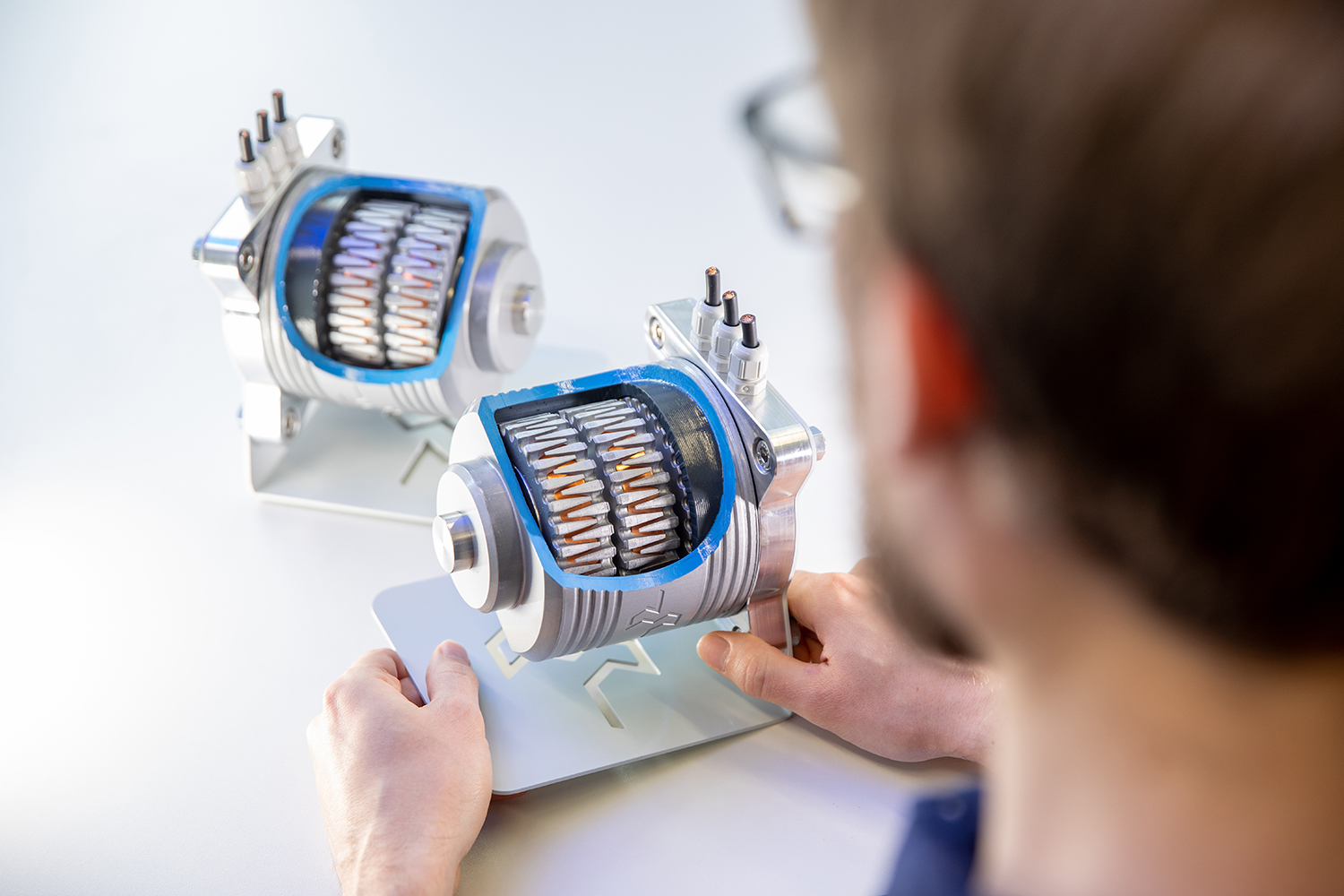
Sustainable development and manufacturing processes
The ICM project DefoRe("Design for Recycling") uses natural fiber composite plastic (NFVK) for vehicle seats to show that sustainable future mobility does not begin on the road, but rather in the development and manufacturing processes and in the choice of materials. In the project, the researchers involved in NFVK design implementation are developing a complete methodology that ensures the sustainability of all process steps, from design and production to recycling - with the aim of transferring this methodology to other components such as the cockpit or door panels.
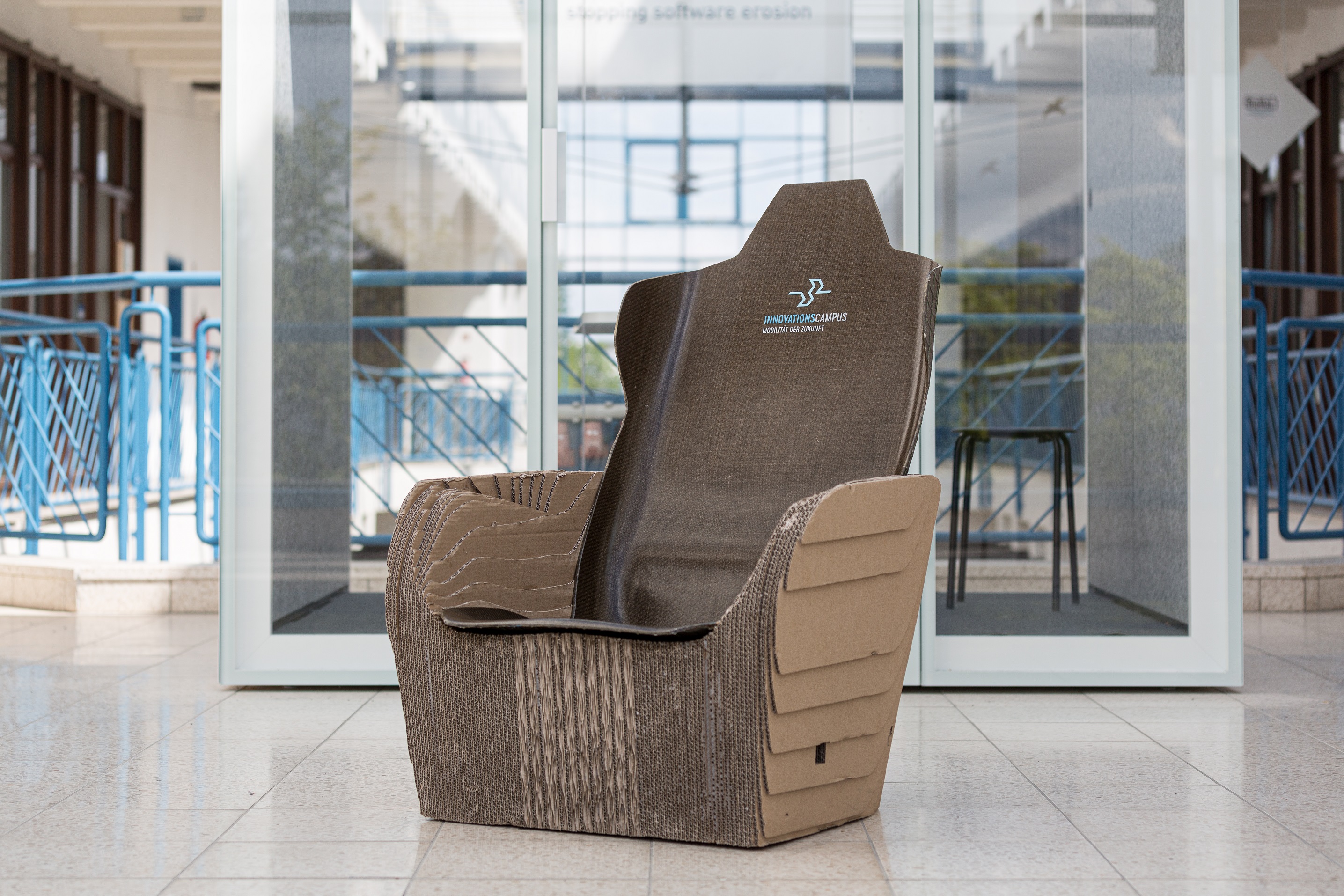
Sustainable and flexible
Sustainable production technologies must be able to adapt flexibly to meet constantly changing requirements, which is where the ICM project SDPräFlexBot comes in. The researchers are developing high-precision measurement techniques and software-driven and adaptive accuracy-optimized configuration, trajectory, and trajectory planning. The aim is to enable simple robot kinematics for varied and high-precision production tasks. At ICM Day, this will be illustrated using the example of a welding process. During this process, one robot holds the workpiece and constantly repositions it to compensate for the imprecise movements of the second robot, which specifies the welding line.
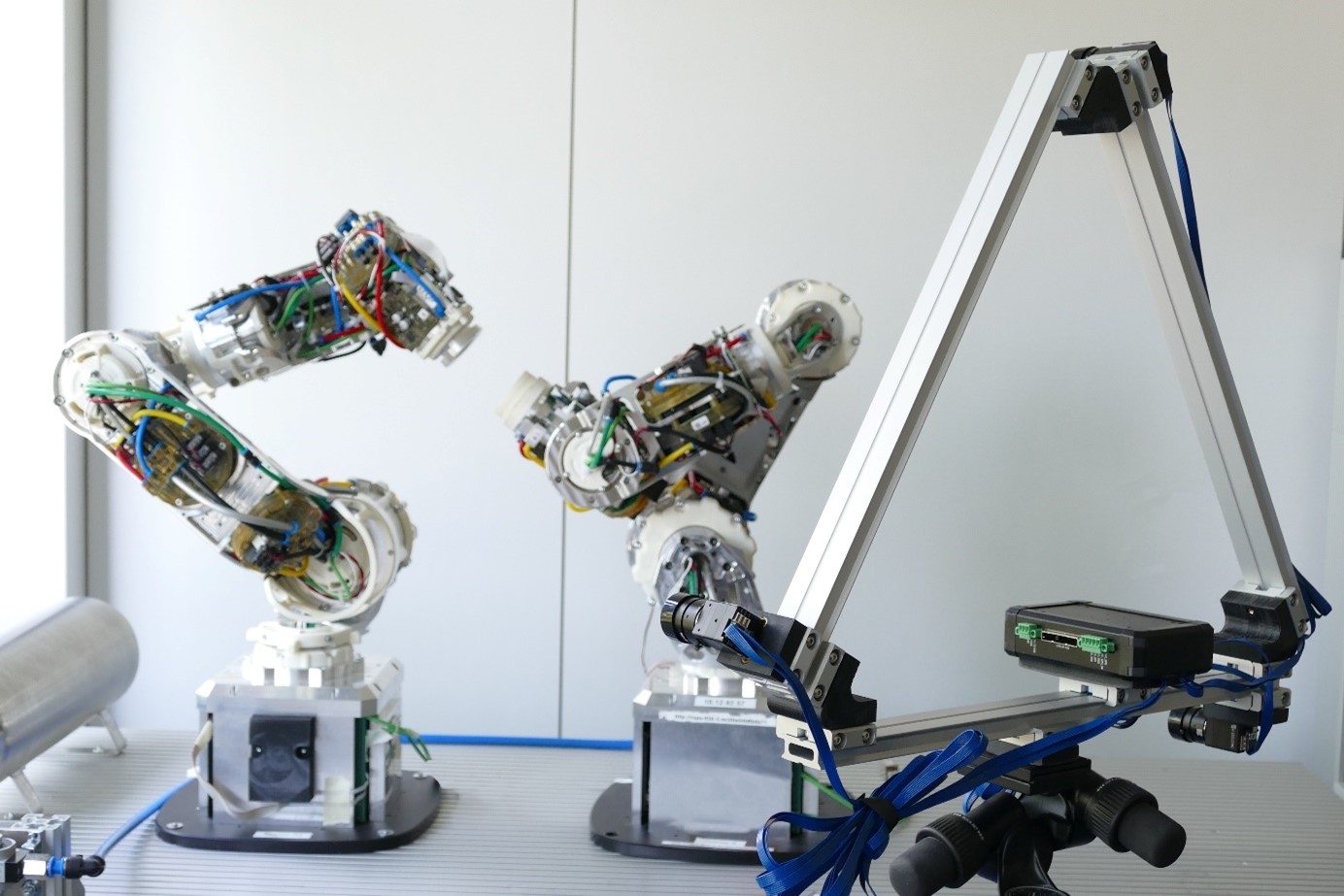
InnovationChallenge as a transfer instrument
"Our goal is also to use various transfer instruments and cooperations with companies to transfer innovations from research into industry and society," explains Dr. Sandra Kaufmann-Weiß, managing director of the ICM at KIT. InnovationChallenge is one such transfer instrument. The ICM uses this primarily to provide small and medium-sized enterprises (SMEs) and start-ups with access to the research infrastructure of the state of Baden-Württemberg via cooperations with university institutes. This has resulted in the development of the CutAIye project. The Institute of Laser Technologies (IFSW) at the University of Stuttgart and laser technology specialist PRECITEC are jointly researching intelligent laser cutting - funded by the Baden-Württemberg Ministry of Science. This is primarily for copper materials, which are used in crucial electric vehicle components. To achieve the project goal, data from the laser equipment sensors will be linked to a machine learning algorithm that monitors the cutting process and regulates parameters such as laser power, cutting speed and gas pressure. This creates the basis for a stable, economical, and flexible manufacturing process with which large quantities of the highest quality can be produced in a fully automated way.
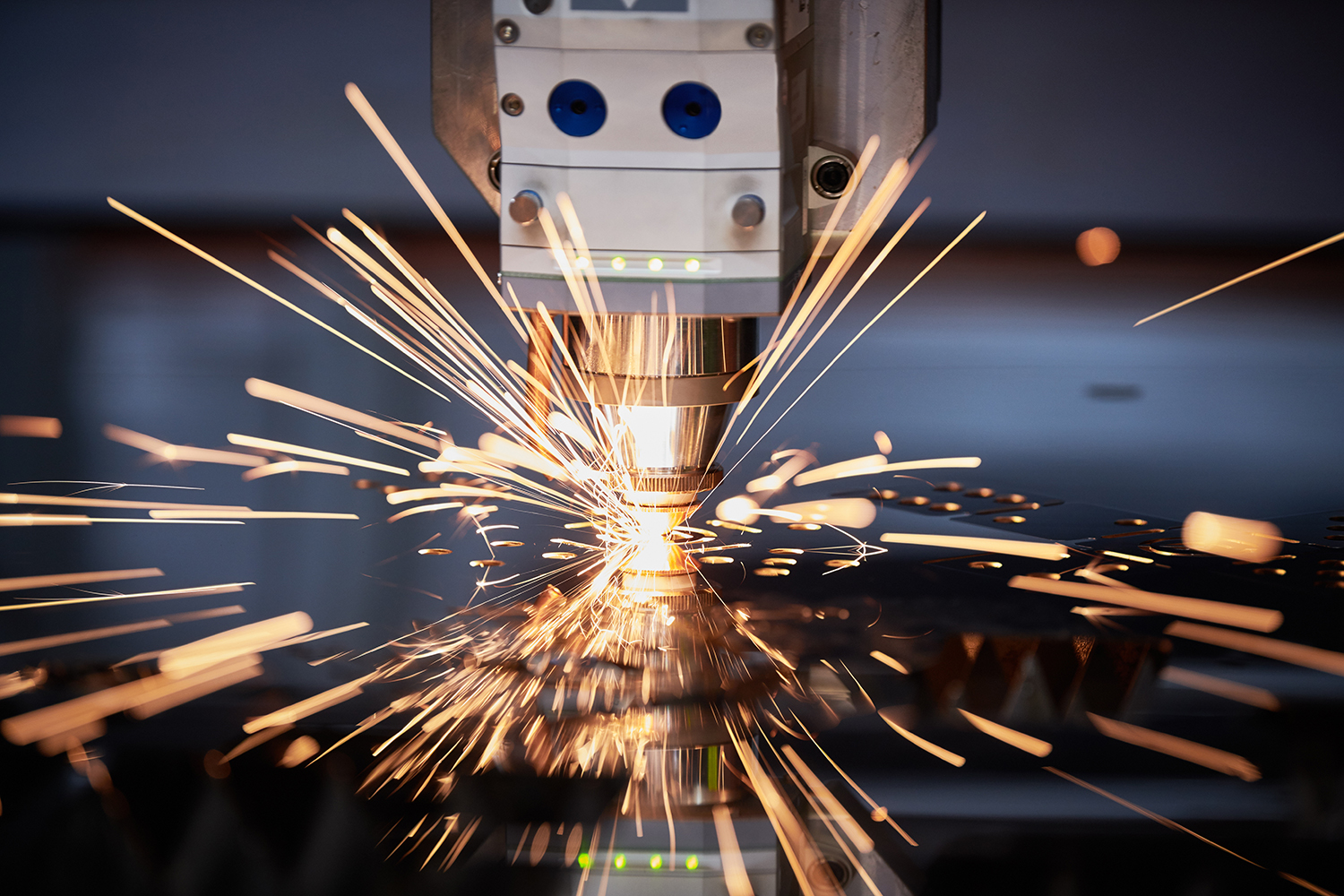
Sustainable bike technology
The Cell Contacting and Pocket Rocket H2 projects, both of which contribute to more sustainable two-wheeled mobility, also emerged from an InnovationChallenge. In the first project, the research consortium consisting of the Karlsruhe-based startup MoThor Batteries and IPEK - Institute for Product Development at KIT developed a battery pack for e-bikes, pedelecs, or e-scooters that can be disassembled down to the battery cells in just a few steps. If a cell is defect, it can be replaced and recycled. The remaining part of the battery can be reused. The Pocket Rocket H2 is a small motorcycle with an electric drive, which the manufacturer Sol Motors has expanded to include a hydrogen-powered range extender in collaboration with the Baden-Wuerttemberg Cooperative State University (DHBW) in Mannheim and Stuttgart. The small lightweight motorcycle weighs only two kilograms more than the purely battery-powered electric version, but covers almost twice the distance on one tank of hydrogen. Visitors are welcome to test the Pocket Rocket H2 on ICM Day.
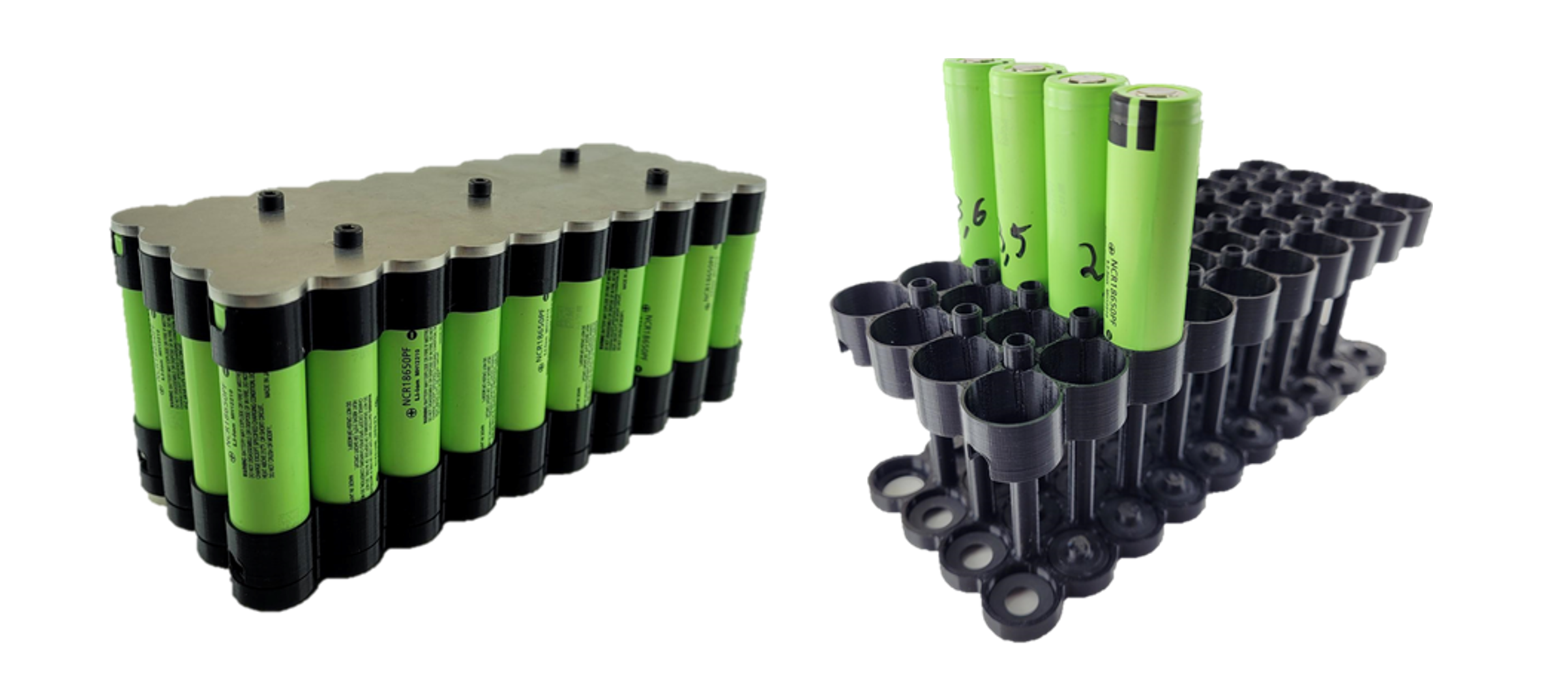
Contact
Benjamin Büchner
Redaktion und Öffentlichkeitsarbeit, InnovationsCampus Mobilität der Zukunft
E-Mail: medien(at)icm-bw.de